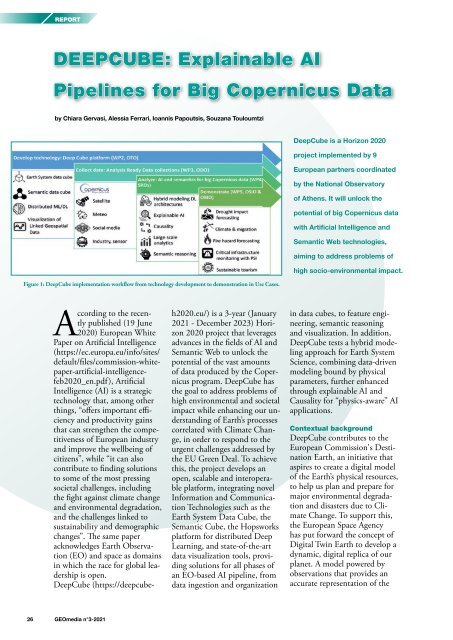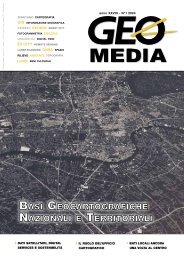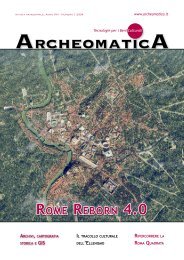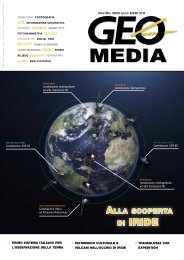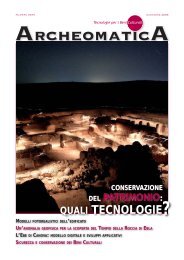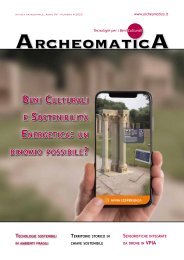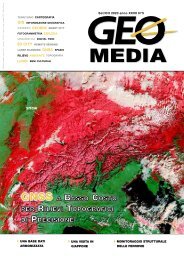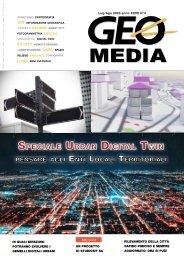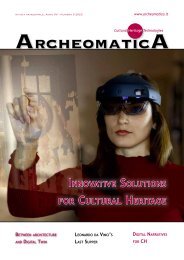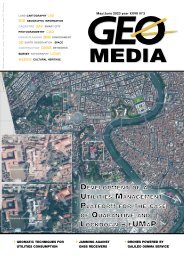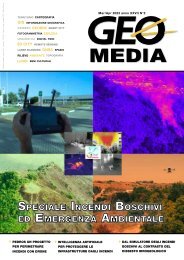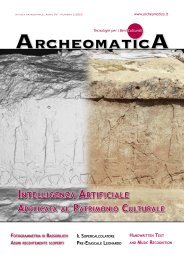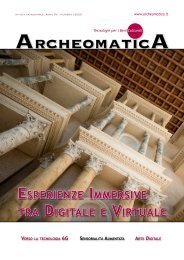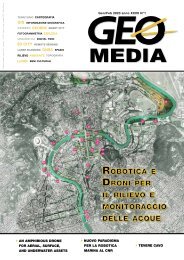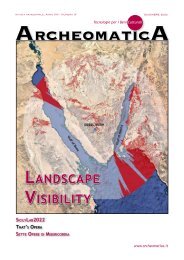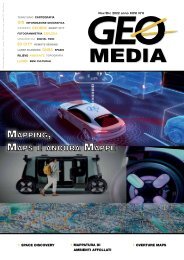Create successful ePaper yourself
Turn your PDF publications into a flip-book with our unique Google optimized e-Paper software.
REPORT<br />
DEEPCUBE: Explainable AI<br />
Pipelines for Big Copernicus Data<br />
by Chiara Gervasi, Alessia Ferrari, Ioannis Papoutsis, Souzana Touloumtzi<br />
DeepCube is a Horizon 2020<br />
project implemented by 9<br />
European partners coordinated<br />
by the National Observatory<br />
of Athens. It will unlock the<br />
potential of big Copernicus data<br />
with Artificial Intelligence and<br />
Semantic Web technologies,<br />
aiming to address problems of<br />
high socio-environmental impact.<br />
Figure 1: DeepCube implementation workflow from technology development to demonstration in Use Cases.<br />
According to the recently<br />
published (19 June<br />
2020) European White<br />
Paper on Artificial Intelligence<br />
(https://ec.europa.eu/info/sites/<br />
default/files/commission-whitepaper-artificial-intelligencefeb2020_en.pdf),<br />
Artificial<br />
Intelligence (AI) is a strategic<br />
technology that, among other<br />
things, “offers important efficiency<br />
and productivity gains<br />
that can strengthen the competitiveness<br />
of European industry<br />
and improve the wellbeing of<br />
citizens”, while “it can also<br />
contribute to finding solutions<br />
to some of the most pressing<br />
societal challenges, including<br />
the fight against climate change<br />
and environmental degradation,<br />
and the challenges linked to<br />
sustainability and demographic<br />
changes”. The same paper<br />
acknowledges Earth Observation<br />
(EO) and space as domains<br />
in which the race for global leadership<br />
is open.<br />
DeepCube (https://deepcubeh2020.eu/)<br />
is a 3-year (January<br />
<strong>2021</strong> - December 2023) Horizon<br />
2020 project that leverages<br />
advances in the fields of AI and<br />
Semantic Web to unlock the<br />
potential of the vast amounts<br />
of data produced by the Copernicus<br />
program. DeepCube has<br />
the goal to address problems of<br />
high environmental and societal<br />
impact while enhancing our understanding<br />
of Earth’s processes<br />
correlated with Climate Change,<br />
in order to respond to the<br />
urgent challenges addressed by<br />
the EU Green Deal. To achieve<br />
this, the project develops an<br />
open, scalable and interoperable<br />
platform, integrating novel<br />
Information and Communication<br />
Technologies such as the<br />
Earth System Data Cube, the<br />
Semantic Cube, the Hopsworks<br />
platform for distributed Deep<br />
Learning, and state-of-the-art<br />
data visualization tools, providing<br />
solutions for all phases of<br />
an EO-based AI pipeline, from<br />
data ingestion and organization<br />
in data cubes, to feature engineering,<br />
semantic reasoning<br />
and visualization. In addition,<br />
DeepCube tests a hybrid modeling<br />
approach for Earth System<br />
Science, combining data-driven<br />
modeling bound by physical<br />
parameters, further enhanced<br />
through explainable AI and<br />
Causality for “physics-aware” AI<br />
applications.<br />
Contextual background<br />
DeepCube contributes to the<br />
European Commission's Destination<br />
Earth, an initiative that<br />
aspires to create a digital model<br />
of the Earth’s physical resources,<br />
to help us plan and prepare for<br />
major environmental degradation<br />
and disasters due to Climate<br />
Change. To support this,<br />
the European Space Agency<br />
has put forward the concept of<br />
Digital Twin Earth to develop a<br />
dynamic, digital replica of our<br />
planet. A model powered by<br />
observations that provides an<br />
accurate representation of the<br />
26 <strong>GEOmedia</strong> n°3-<strong>2021</strong>


